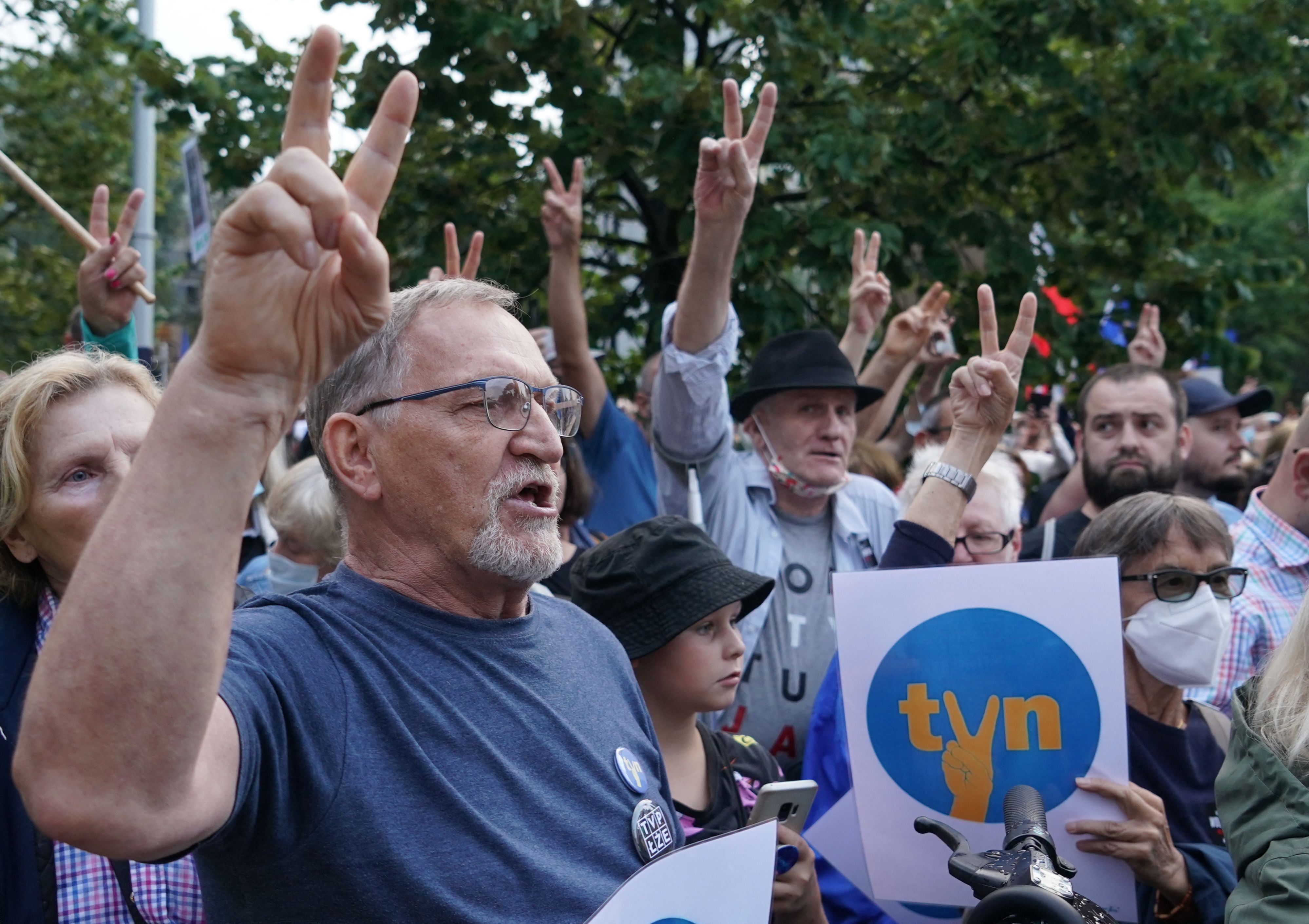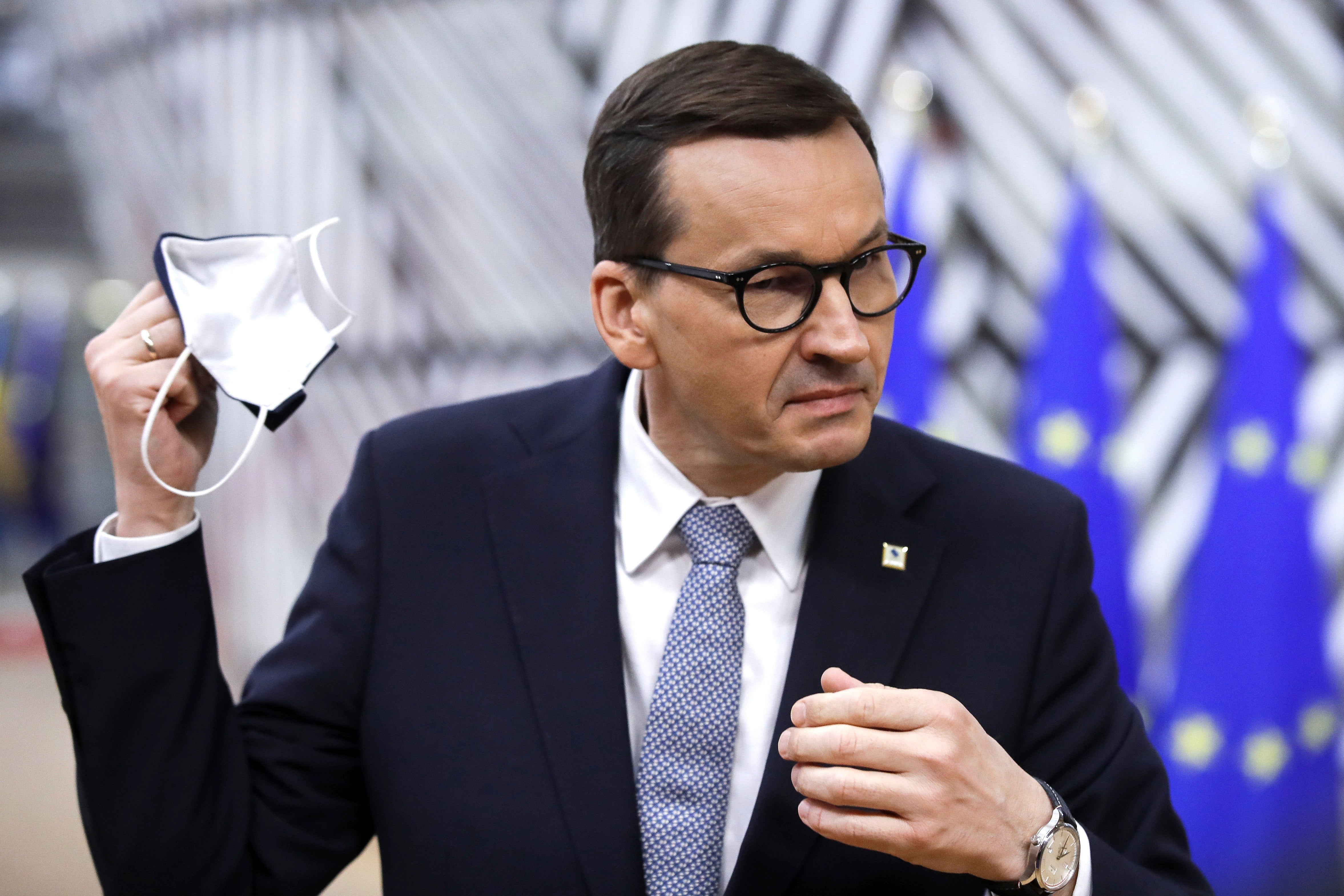‘We will continue to fight’: US media owners start legal action against Poland over ‘discriminatory steps’
In an interview with The Independent, US media owner, J.B.Perrette, warns Poland is ‘approaching an autocratic state’, writes William Nattrass

Poland’s proposed media law banning majority ownership of broadcasters by non-European entities has caused astonishment by placing American investors in the crosshairs.
TVN, the country’s largest independent television station and the biggest TV news provider in Poland, is threatened with cancellation as a result of a law which many see as an attempt to root out opposition to the ruling Law and Justice (PiS) regime.
Discovery Inc., the American media company which owns a majority stake in TVN, has now launched legal proceedings against Poland in the aftermath of the media law’s successful passage through parliament, arguing “discriminatory” steps to force out the broadcaster violate the terms of an investment treaty between the US and Poland.
The Independent spoke to J.B. Perrette, the president and CEO of Discovery Networks International, about the implications of the media law, asking why the Polish government is targeting TVN in particular.
“First of all, there is no other foreign-owned television provider which this law could be taking aim at,” said Mr Perrette. “By default, we are the only investor being targeted.”
“Our dedicated news channel TVN24 has been waiting for a licence renewal for 18 months now. But with the main channel also broadcasting a 7 o’clock news show, this law is a way for the Polish government to kill off our entire news service.”
Discriminatory action against the government-critical TVN has, according to Mr Perrette, been a long-running issue since PiS took power in 2015.
“For the last several years we have faced veiled and not-so-veiled threats, such as anonymous buyers pressuring us to sell and other methods putting pressure on our operations,” he said.
The media law was passed last Wednesday during a chaotic session in the Polish Parliament, the Sejm, which saw a motion to delay proceedings repeated after some MPs claimed they had voted against the government by mistake.
The farcical scenes led to allegations of corruption and cries of “treason” in the chamber.
It is an outrage for this bill to lump the U.S. together with China, Russia and international drug lords.
A proposed amendment which would have allowed NATO countries to continue owning Polish media companies was meanwhile rejected, leading to renewed questions about the intentions behind the law.
The Prime Minister, Mateusz Morawiecki, said it is meant to prevent ownership of Polish media by “an entity from Russia, China or an Arab country”, while deputy prime minister Jaroslaw Kaczynski claimed the law will protect Polish media from infiltration by the international drugs trade.
In reality, the entity most affected by the law will be New York-based Discovery.
With US senators weighing in to criticise the bill, the implications for Polish-U.S. relations are likely to be serious.
“The United States has been a loyal and important partner of Poland for decades,” said Mr Perrette. “It is an outrage for this bill to lump the U.S. together with China, Russia and international drug lords.”
“The U.S. government has significant interests in the security of the central and eastern Europe region, and support for us against this media law is bipartisan. But we still have to somehow face Poland’s transition from a beacon of democracy to something approaching an autocratic state.”
With the media law causing Poland’s United Right coalition to fracture, analysts believe Polish politics is now set to become more polarised on matters such as the rule of law and international relations.
I fear that material consequences for Poland may be the only way to move from moral outrage to real change
“The departure of some MPs from the coalition will strengthen the radical right United Poland party, which could paralyse the government with its strongly anti-EU and anti-US rhetoric,” Tomasz Pawłuszko told The Independent.
But for foreign investors such as Discovery, the controversial course being steered by the government is already symbolic of Poland’s turn away from democratic values.
“It pains us to see all the gains made by Poland over the years in terms of democracy being thrown out of the window,” said Mr Perrette.
“The implication is that, from one year to the next, your business here could effectively be nationalised. This is highly concerning for any investor.”
Questions are now being asked about the international response to the Polish crackdown on media freedom.

European Commission vice president Věra Jourová has proposed the introduction of an EU-wide “media freedom act” in response to events in Poland, while US secretary of state Antony Blinken said the Biden administration is “deeply troubled” by the media law.
“In the wider context of other nations such as Hungary limiting media freedoms, there is a real question facing the EU in terms of the principles and values it expects from its member states,” said Mr Perrette.
“The EU and the US government have been vocal supporters of the principles of rule of law and media freedom. But I fear that material consequences for Poland may be the only way to move from moral outrage to real change.”
Contingency plans are now being put in place to allow TVN to continue operating, including the acquisition of a Dutch broadcasting licence. But such “fall-back” solutions would be no substitute for freedom to operate in Poland itself, as free-to-air channels would still be at risk of cancellation.
“We intend to do the right thing in all our markets, and in Poland this means representing the Polish people and fighting for the values which we believe should be upheld in all EU countries,” Mr Perrette said.
“Ideology can be a very difficult opponent to overcome. But we will continue to fight.”






Join our commenting forum
Join thought-provoking conversations, follow other Independent readers and see their replies
Comments